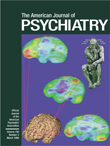Another Explanation for the Apparent Discrimination Against International Medical Graduates by Residency Programs
To the Editor: Richard Balon, M.D., and colleagues (1) published results of a study showing that psychiatric residency programs are less responsive to requests for applications from international medical graduates than from graduates of U.S. schools. The conclusion they drew was that programs discriminate against those who obtained medical degrees from outside the United States. Nasir (2) conducted a similar study of family medicine programs with similar results and conclusions. He made the additional points that studies indicating the poorer group performance of international medical graduates and the frequently reported difficulty in assessing a foreign candidate’s previous educational experience may be responsible for the reluctance of many programs to consider international medical graduates for residency positions.
We propose a practical explanation for the preferential response to U.S. graduates on the basis of our recent experience with international medical graduate applications. By the end of 1997, we had received 710 applications for six residency positions; 685 were submitted by international medical graduates. We are keenly interested in identifying qualified applicants, regardless of their demographics, as are the other training directors we know. We have been successful in recruiting a diverse residency group that includes both U.S. and foreign graduates. The problem for us, and perhaps for other programs, is the amount of time and money expended in the search for those residents. In 1997, our faculty spent more than 70 hours thoroughly reviewing every application; for every application that results in an interview, 24 are declined because of inadequate qualifications.
The expense of recruitment is too great to be sustained in the manner suggested in the Balon et al. article. That some programs did not even send applications to some U.S. graduates could be an indicator of an overburdened selection system. Limiting the number of applications sent out may be one way in which some programs attempt to deal with the cost and frustration of this early phase of recruitment. It is highly likely that programs would welcome a cost-effective approach to the screening of all applicants. We join in calling for the Educational Commission for Foreign Medical Graduates to take a more active role in the evaluation of clinical competence and language skills when determining who is likely to succeed in the U.S. medical system (3). Currently, too much of this is left to the individual programs. This leads to fewer resources available to focus on the task to which we are best suited, that of identifying future psychiatric colleagues who are likely to thrive in our specialty at our particular institution.
1. Balon R, Mufti R, Williams M, Riba M: Possible discrimination in recruitment of psychiatry residents? Am J Psychiatry 1997; 154:1608–1609Google Scholar
2. Nasir LS: Evidence of discrimination against international medical graduates applying to family practice residency programs. Fam Med 1994; 26:625–629Medline, Google Scholar
3. Levey GS: Internal medicine and the training of international medical graduates: a time for open discussion and new approaches. Ann Intern Med 1992; 117:403–407Crossref, Medline, Google Scholar



